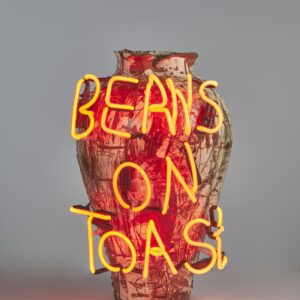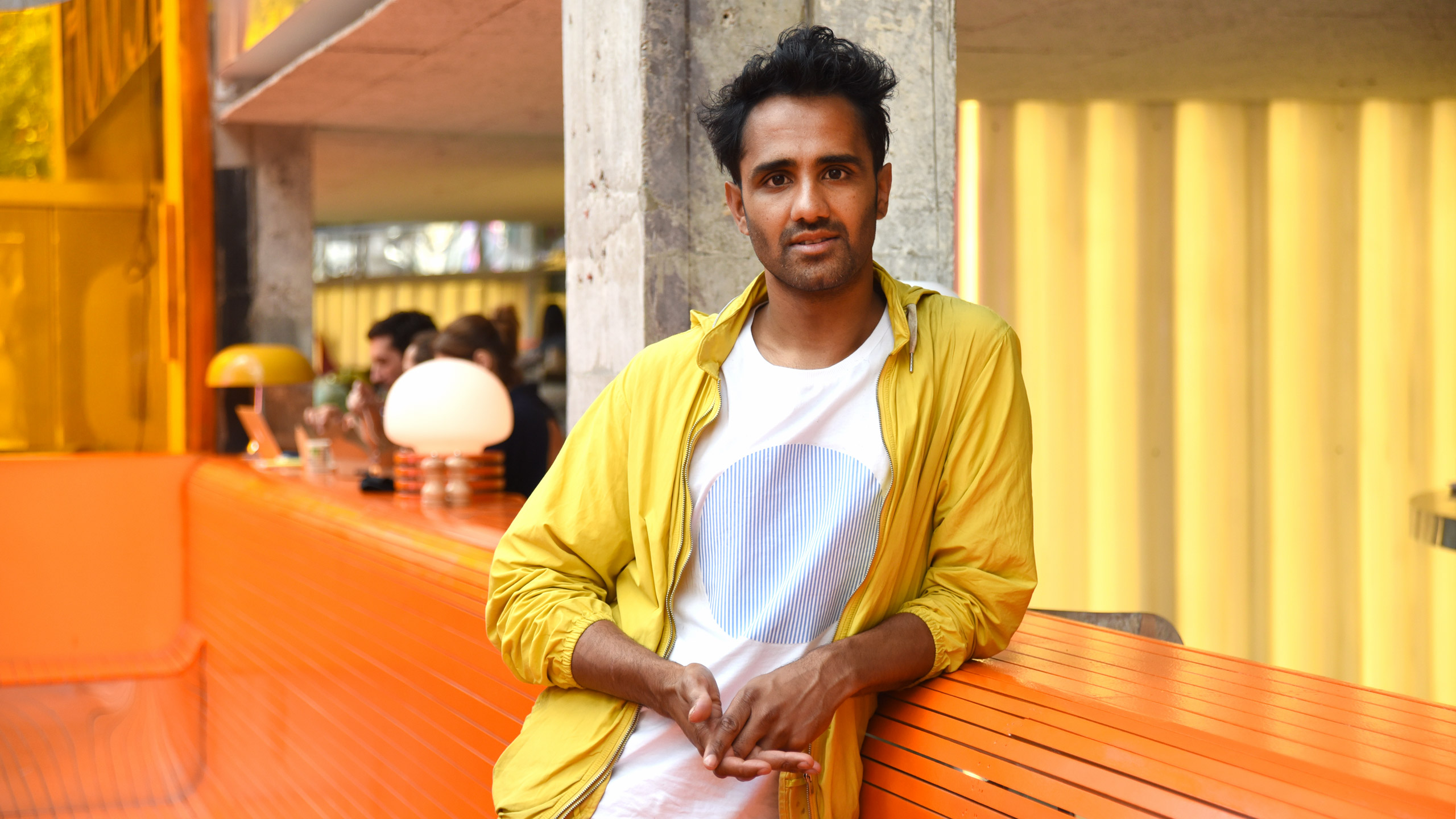
We met up with Rohan Silva co- founder of Second Home at their amazing new space in Holland Park and found out that Second Home are not your ordinary hot-desking property company..
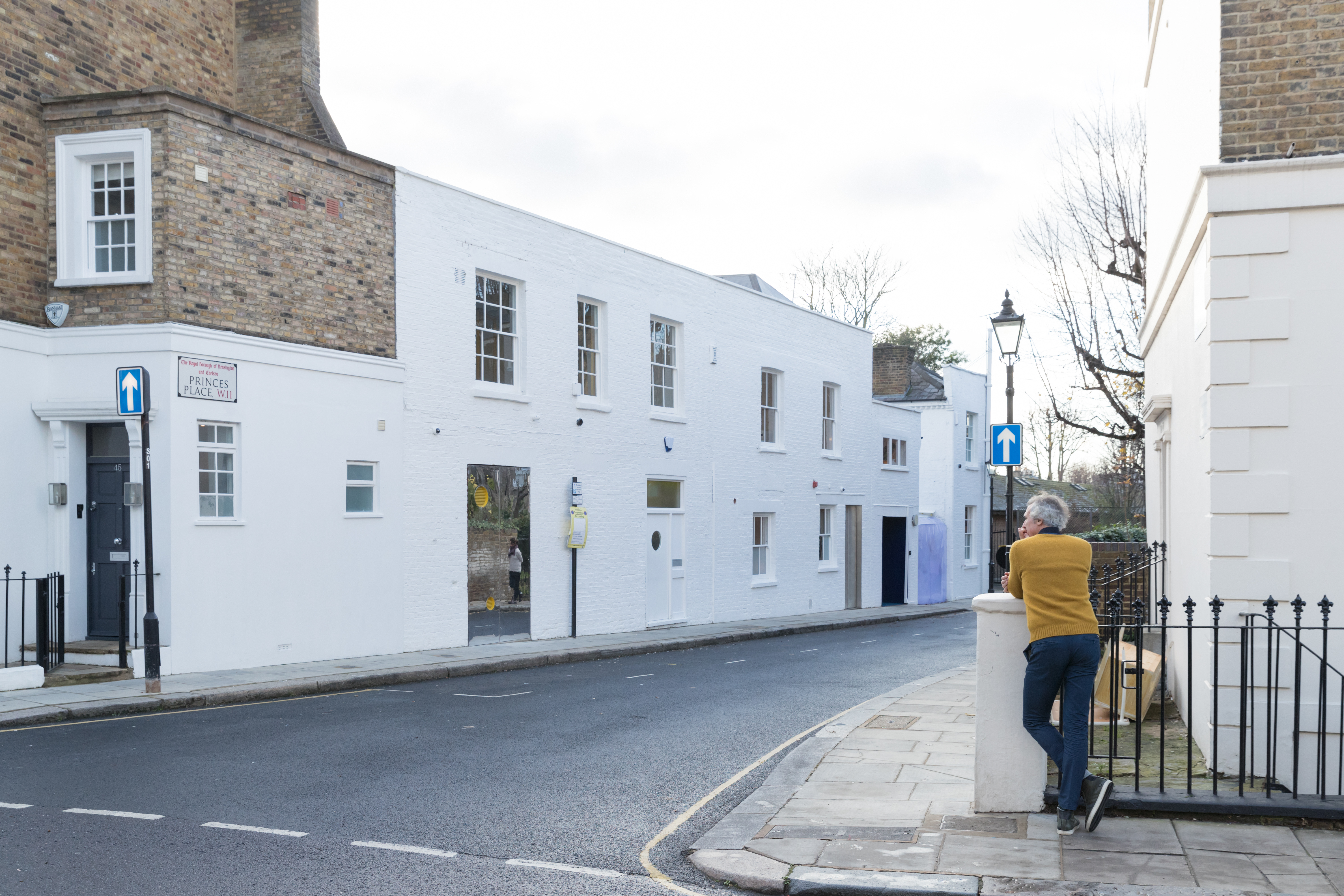
Holland Park
Where you looking for a place around Holland Park?
We had been talking about doing a space in West London since before we opened the space in Spitafield, the reason being we thought: It’s never healthy when a city becomes unbalanced.
We are a social business we are not trying to maximize profits, so we are always interested in what is missing from the city, what we might be able to do to contribute and one of things we thought really strongly, was that too much of the cultural investment was going East. 50 years ago the East was desperately short of investment and it needed it and has needed it but you get to a point where maybe the pendulum has maybe swung too far one way and it really struck us that there are so many creative people in the West of London. A lot of cultural places have closed in West London, Riverside studios have gone, Richard Rogers offices have been turned into flats.
So we have been talking about West London but haven’t been actively looking and then some random dude messaged my co-founder Sam on LinkedIn to say ‘I’ve got a building for you’. Luckily he messaged Sam and not me because I would have pressed spam and delete but Sam being a much nicer guy went to the space (he knew nothing about the history of the space) but he calls me up “I’ve found the space”
In lots of ways it didn’t meet our normal criteria it’s actually much smaller than what we normally have at Second Home because we like to have big communities at our spaces.
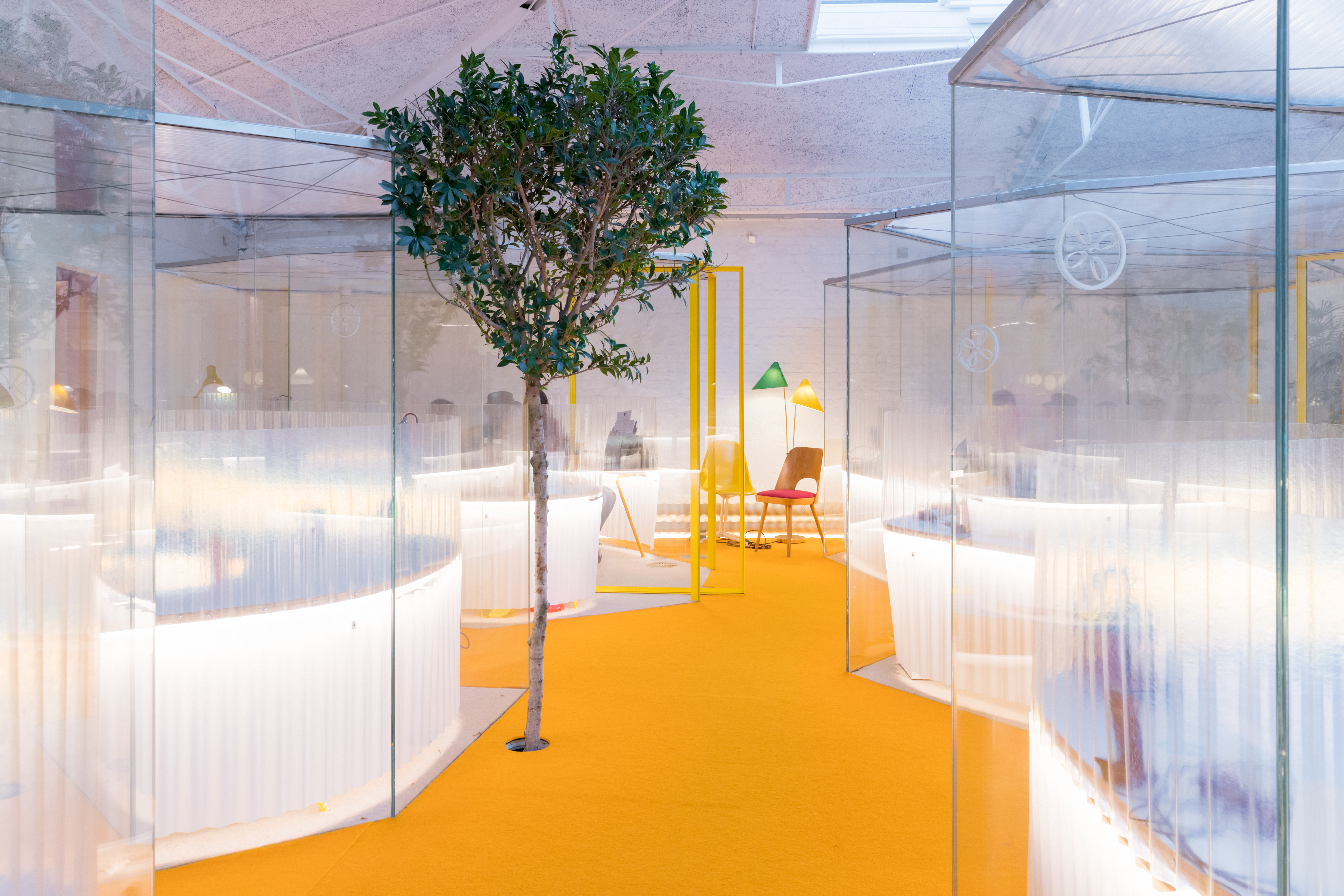
Holland Park
So how many people can you fit in?
About 200 the one in Spitafields 1,100 and London Fields will be 500. We always assumed 500 would be our smallest space but Holland Park is an amazing space with a great creative history. People can also move between the spaces and our team is continually introducing people from one Second Home space to another, Spitafield to Lisbon etc
Trade is such a powerful thing, if you take Spitafield and Lisbon, our communities in both, you would be shocked by how much business is being done between the two groups.
Lisbon is full of really creative people who have much lower overheads, Lisbon is booming, but what it lacks, there is not so much investment at all as there is in London. So every week you have Lisbon entrepreneurs meeting at our Spitafield space, pitching investors. You’ve got members from London working with graphic designers and website builders etc in Lisbon and its just really cool and it makes you realise how many opportunities there are for people to work together not being realised because just at a human level you don’t know who to work with. Its funny because the Internet was supposed to get rid of the need, rid of the need to physically meet. However it has not, in-fact it seems to have done the opposite
At the dawn of the Internet there where all these predictions, one was, the Internet would obliterate distance, the prediction was we would all be living in the countryside in the middle of nowhere writing/collaborating and you wouldn’t need to come into an office. Actually the opposite has happened, the truth is if you look at where innovation is happening, where patents are being generated its now more strongly concentrated within urban centers than 30 years ago pre-internet.
This paradoxical thing happened. In the Internet age it seems to be more important than ever that people get together physically and yet the built environment in the City still seems generic office build. Five stories each for each different company, where do these companies get to interact? In the lift maybe? There’s rarely any mixing between companies and its even more unusual between industries.
At Second Home we are really obsessed with trying to drive that cross-pollination because it is such a driver of innovation it is the needle we are continuously trying to thread and we want to keep doing it, doing more of it.
We want what we do to be sustainable but at the same time the biggest group of organistaions/industry we have are charities and not for profit /NGO’s they are 15% of our members and they are paying significantly reduced rent some are not paying anything at Second Home and the reason you have to do that, is they couldn’t afford to do it otherwise, so you have to fight for that diversity and that isn’t what you do if you are basically just looking at a spreadsheet and trying to maximize income, but it is what you do if you’ve got this purpose or belief that the world is more fun and interesting if you have diversity.
So when you get to Spitafield you have Help Refugees charity, their studio is next door to Ernst & Young Innovation Lab and next to them is George Pank who produced the Amy Whinehouse film, it’s a really interesting mix. Help Refugees couldn’t be there if they where paying the same as Ernst & Young.
Have you ever thought about buying?
Buying stuff is really expensive and leasing is a lot cheaper and we wanted to get out there and do this thing. We really do hope that we can make a material difference to the countries trajectory by using Second Home. We really believe it is possible to use the build environment with our cultural program, to use an approach to community to really help support: Job creation, entrepreneurship and innovation. We really think this can be true.
Also if we had gone to investors and said hey give us £20 million they would have said no, so we went out and it was still a big ask, we had to raise £4 million in 3 weeks to lease our first building and we managed to do it but we where totally out of the normal boundaries of any normal business start up.
That may well change but I think the bio rhythm of property people, we are not wired like that, we like to move quickly, try things out, do things differently, it’s entirely a function of what the world would let us get away with.
Do you take long leases everywhere?
We do, we take as long a lease as we can get and we invest a lot of money to try and get and create the right kind of spaces. And I think one of the things we have tried to do: We opened our first Second Home three years ago and we opened with just two floors, then we opened two more floors then the top floor then Lisbon then a bookshop, now we have Holland Park but what is nice is that each of them is really different there are no, what we really try and do is respond to the building we are in. Our Lisbon space is in a fully functioning fruit and veg market in the city.
Why Lisbon?
Its entirely about feeling like here’s somewhere we can make a bit of a difference.
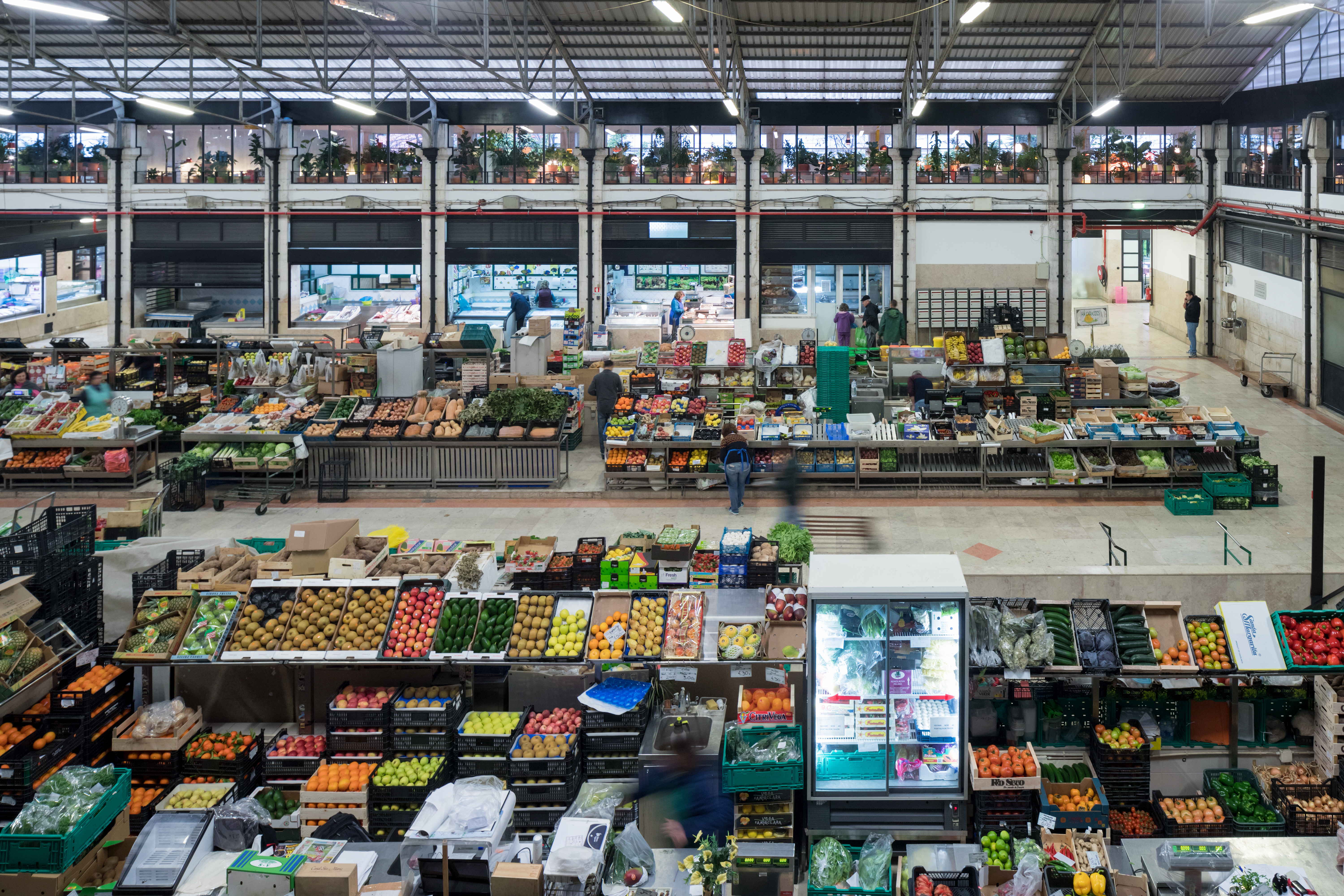
Lisbon
Your timing seems to have been good, Lisbon is really buzzing now, it’s the new Berlin isn’t it?
When we decided to go there 3 years ago no one was talking about it, with every Second Home people say, that’s a very smart location or whatever, no one was saying that at the time, the building in Spitafield was empty for 10 years, Lisbon 5 years and Holland Park 3 years. Second Home Lisbon is an amazing space, there’s a great café, lots of open communal space and to keep costs down for local entrepreneurs, we just used plants as a division between teams which looked great was very cost effective and worked really well. The breadth of teams is amazing, Volkswagen have a team of 90 people and they are next to a new surf school that are next to a team from the government of Macau then a new food business, an amazing great mix.
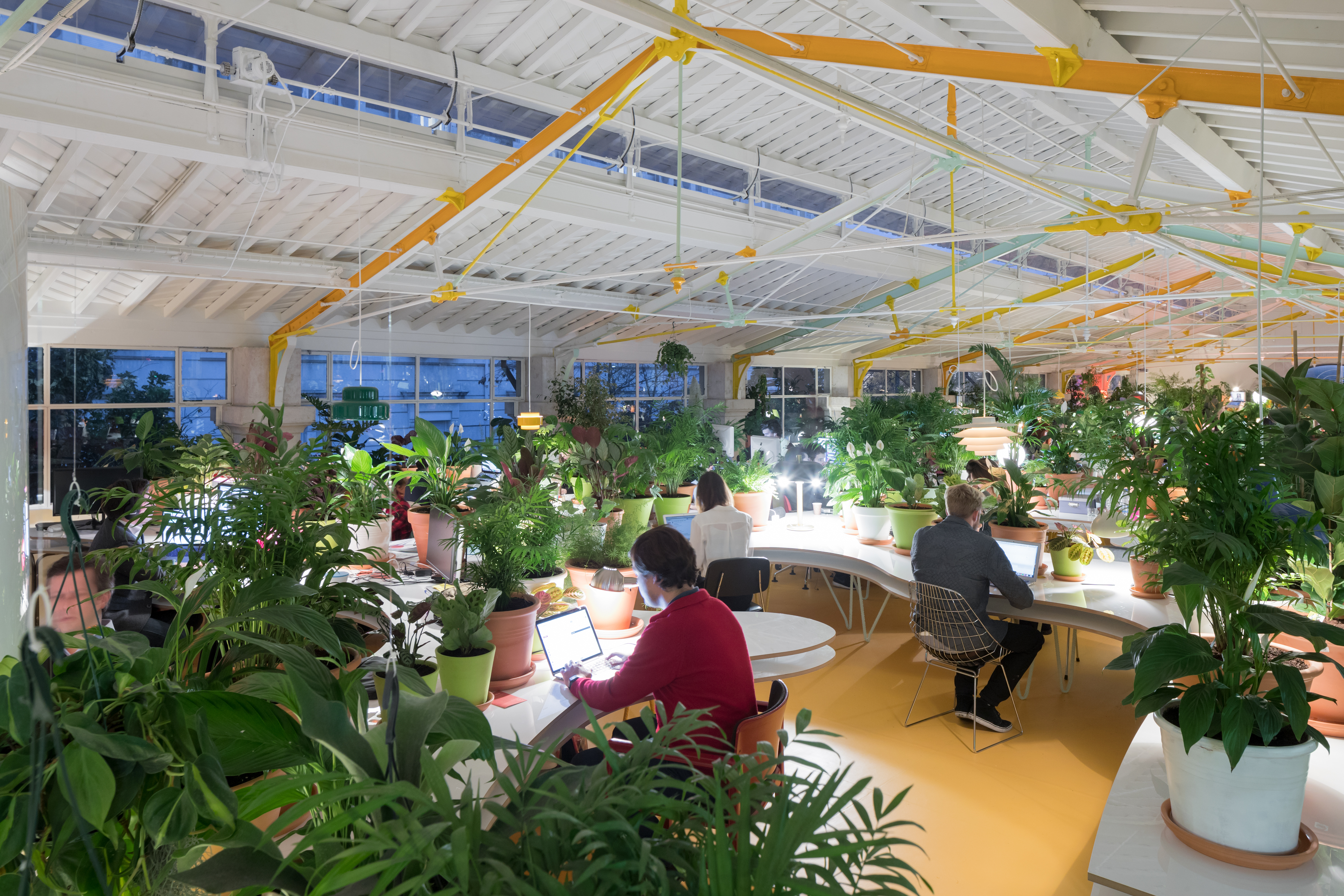
Lisbon
The space was opened by the Prime Minister of Portugal and the Mayor of Lisbon.
A year latter the President of Portugal came to celebrate and acknowledge the impact Second Home had made to the area.
In 2014 I heard there was something interesting going on in Lisbon, a scene, no one was talking about it as business place, I think that was when my head was tuned in. It’s 4am in Lisbon and it’s just v relaxed having a glass of wine v chilled, it’s hard to do that in London now, it’s become very restricted all 5am licenses have been cancelled, 40% of music venues have been closed in the last 8 years London in many ways has become a lot less fun.

Second Home bookshop Libreria
You also have a bookshop in Spitafield
The idea behind the bookshop is exactly the same as Second Home, help people encounter ideas and disciplines, expand their horizons, bookshops are amazing. If you go to a good bookshop you’ll see books you weren’t thinking off before, its not like Amazon where you need to know what you are looking for so we try to maximize that sense of discovery.
We organize shelves according to three different themes, like terror, power and utopia, which means when you are standing in one place you can be looking at 6/7 different themes at once so your eye will hopefully move between amazingly different subjects such as: renaissance literature, quantum physics, crime and so on.
Holland Park isn’t the end is it?
No we also have London Fields opening in the summer. The reason we want to keep growing is the mathematical network theory, (Metcalfe’s Law) that for every new person or group that joins our community the number of potential links doesn’t grow linearly it grows exponentially, so there’s a real strong initiative for us to keep growing the community. One of the things that keeps Second Home interesting is the mantra: ‘life’s to short to keep doing the same thing’.
So while we definitely want to keep growing the community we don’t want to be doing the same as Starbucks or WeWork, the same space//look again and again and again cubicles everywhere.
So every Second Home is different it’s a response to the building it’s in and the neighborhood, the same fundamental principles but Spitafield is a very different space to Holland Park. All our spaces use the same architect and they all feel kinda late 60’s early 70’s from a time of optimism because we are now today very optimistic and we truly believe the future can be great if we do the right things and we want that to be reflected in our spaces. One of the reasons we opened the bookshop and the poetry book store here at Holland Park is that digital is good for productivity but it is pretty shit at creativity /idea generation to be bombarded by notifications/messages all the time is really terrible for idea generation. So creating space where you are encouraged to turn of digitally is sensible in a physical thing.
There is a lot of space at Second Homes
Yes absolutely 1/3 of Spitafield is common space. The whole front of the building is free to the public to come in, the café/restaurant, the whole cultural programmed is free and open to the public, we get a lot of flack for that from traditional property people: ‘Your gross occupancy ratio isn’t what it could be ‘
But we say “Your buildings aren’t what they could be”
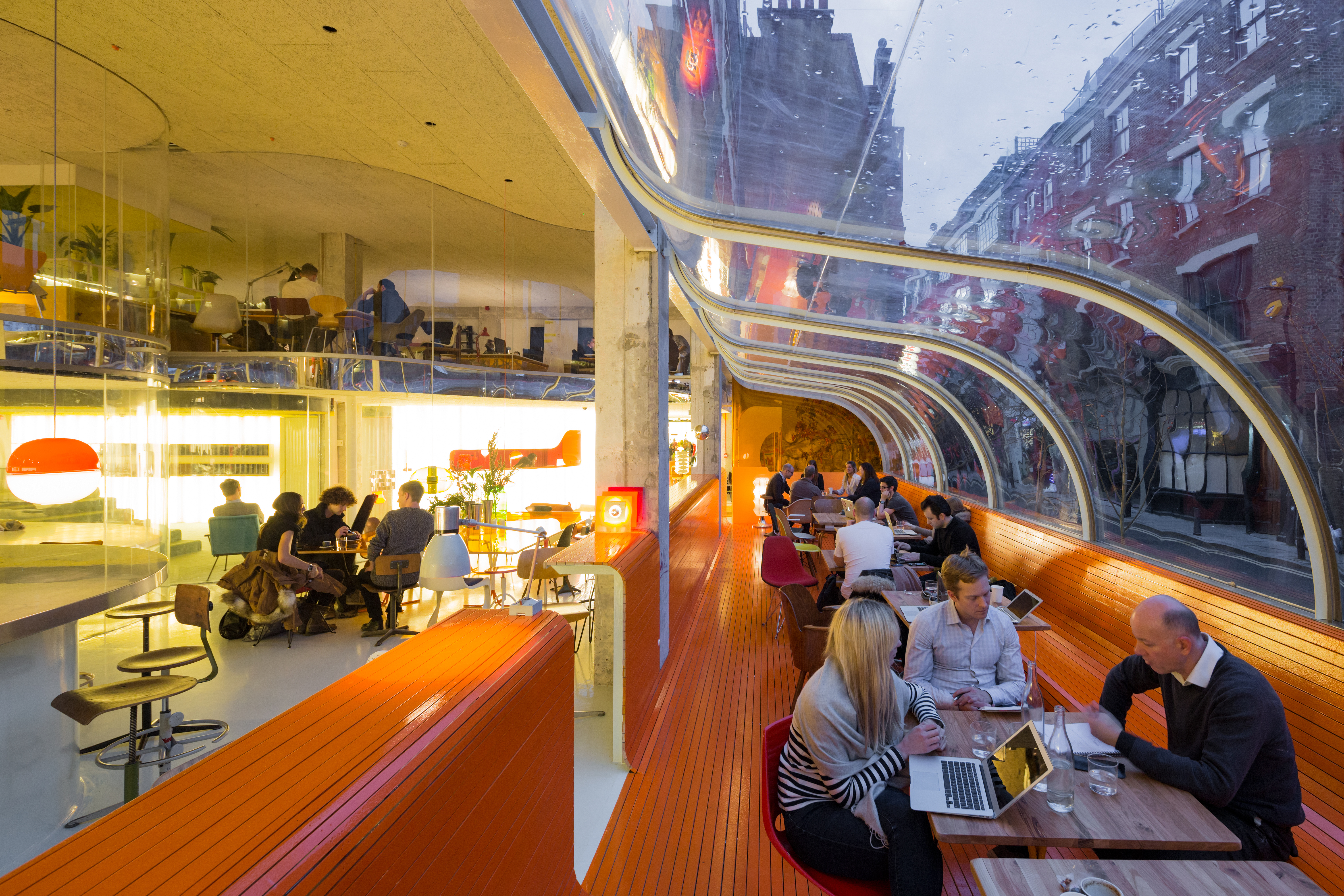
Spitafield
Do you encourage people to swap between Second Homes?
We really do, actually we are quite lucky we have a bunch of people who like Second Home so much they where travelling from the West to Spitafield everyday they where actually some of our first people here at Holland Park.
Also our cultural programme really helps, we’ve had people like Bella Freud, Michael Pollan which has encouraged our East community to come West
But the main thing we do, we know people will travel for business we can’t rely on altruism, so we encourage trade, then people travel, the opportunity to do business or to learn from other entrepreneurs really works.
We have great investors who are all entrepreneurs, they want us to create a place that they would have wanted to have grown their business in, which is quite a cool brief.The things we are trying to do now, I’ve not seen many people pull off and hopefully we
will. If you take Soho House they have loads of spaces around the world, but if I walked into Shoreditch house and I was a member there and asked to see the members list of Malibu Beach House they’d say ‘Fuck off’ we are a private members club. At Second Home we want you to meet other members we want to encourage that connection that community not only will we show you the list we will do an introduction.
The world was less flat when they started in 1997, the world was a different place, what they are all about is for you to have a good time.
When we started in 2014 there was much more pressure to start a business yourself and also to be creative because if you are not doing something creative, its likely a piece of software, machine or program will replace your job so there’s a lot of pressure on people. So Second Home in a way is a lot more nerdy than Soho House is, it’s really about:
“How can we help people start a business, grow a business, how can we help you be more creative”
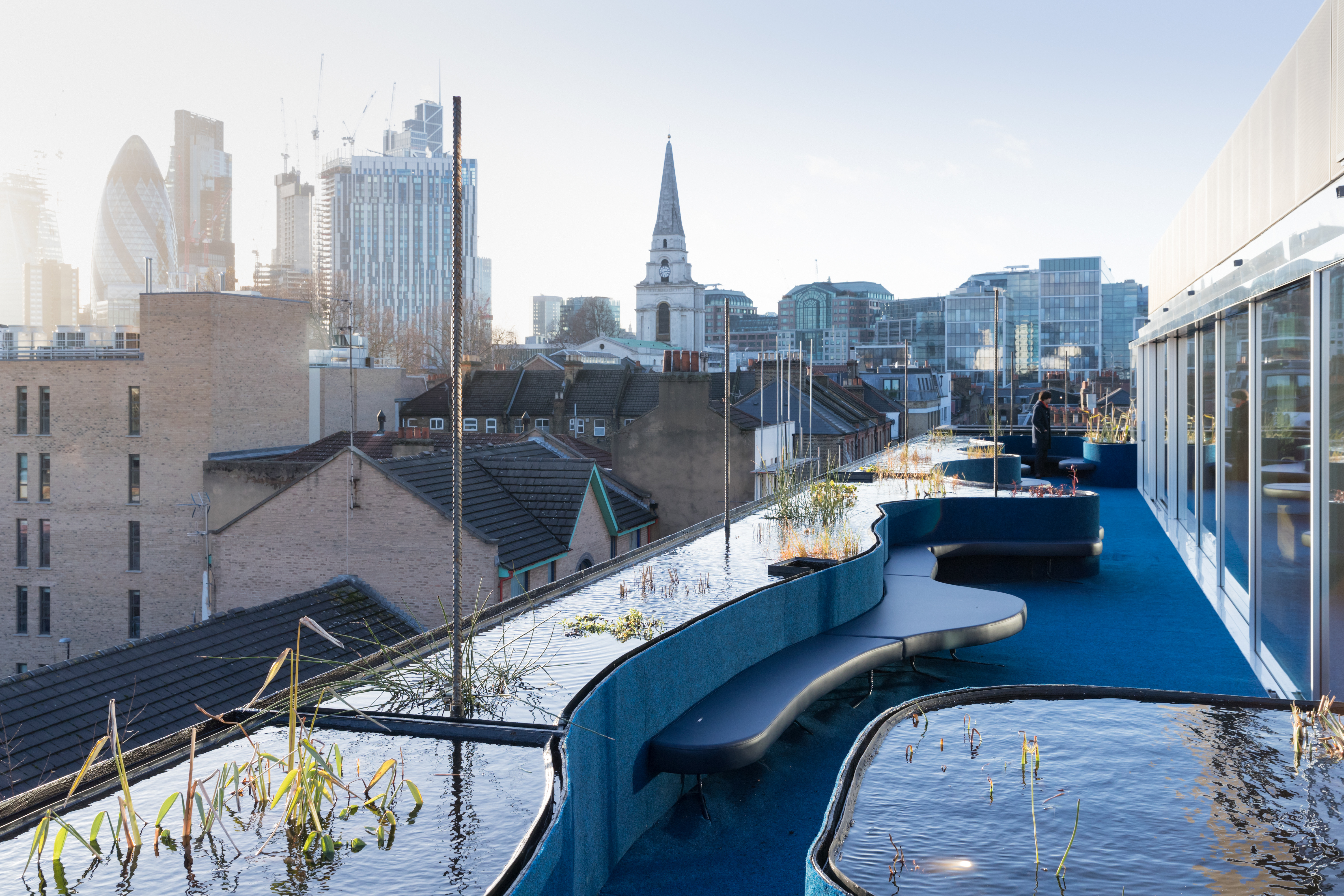
Rooftop Second Home Spitafield




